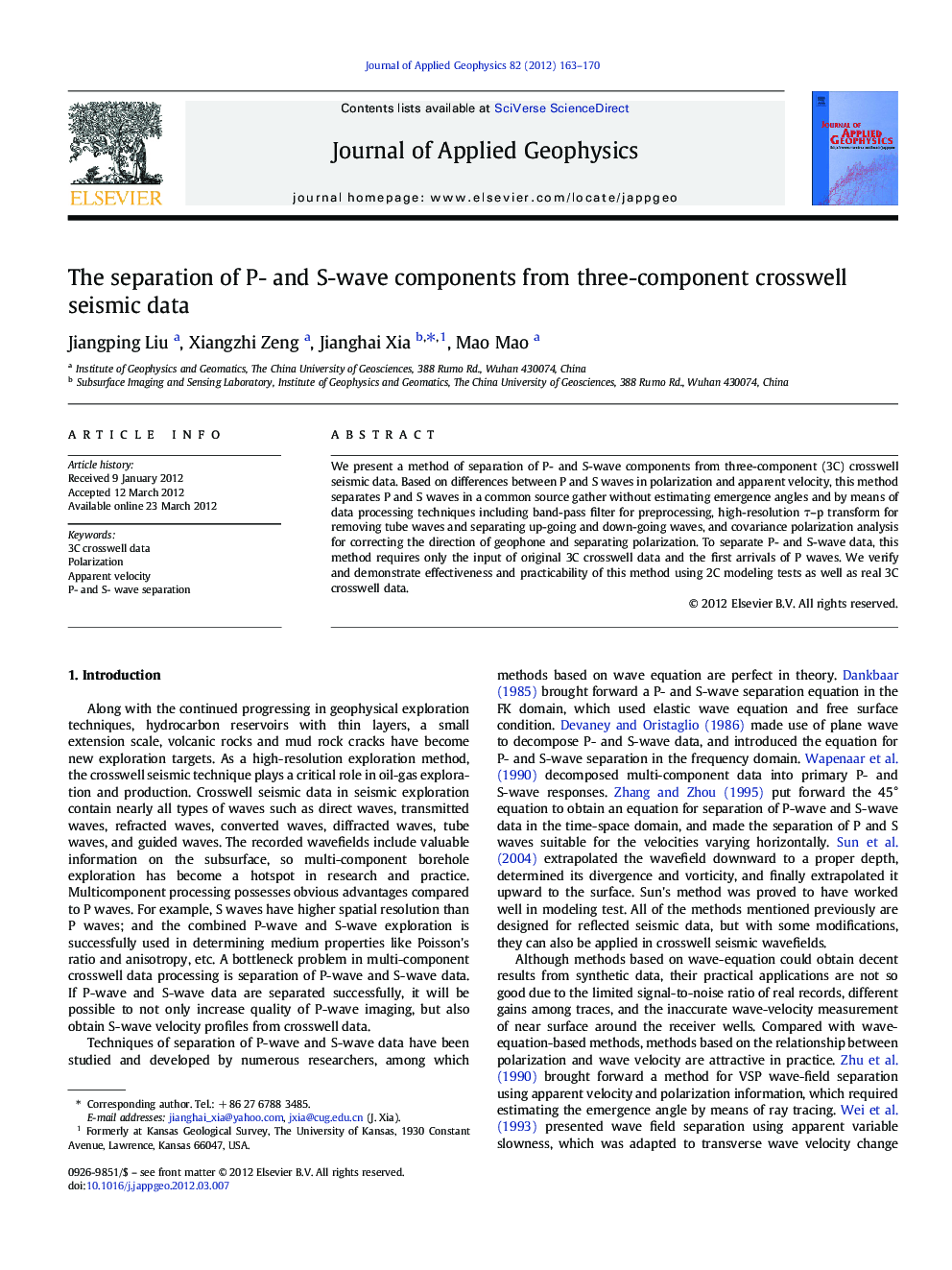| Article ID | Journal | Published Year | Pages | File Type |
|---|---|---|---|---|
| 4740555 | Journal of Applied Geophysics | 2012 | 8 Pages |
We present a method of separation of P- and S-wave components from three-component (3C) crosswell seismic data. Based on differences between P and S waves in polarization and apparent velocity, this method separates P and S waves in a common source gather without estimating emergence angles and by means of data processing techniques including band-pass filter for preprocessing, high-resolution τ–p transform for removing tube waves and separating up-going and down-going waves, and covariance polarization analysis for correcting the direction of geophone and separating polarization. To separate P- and S-wave data, this method requires only the input of original 3C crosswell data and the first arrivals of P waves. We verify and demonstrate effectiveness and practicability of this method using 2C modeling tests as well as real 3C crosswell data.
► A new method of separating P- and S-wave components from 3C crosswell seismic data. ► The method only needs information on polarization and apparent velocity. ► Required inputs are original 3C crosswell data and the first arrivals of P waves. ► 2C modeling tests and real 3C crosswell example are presented.
